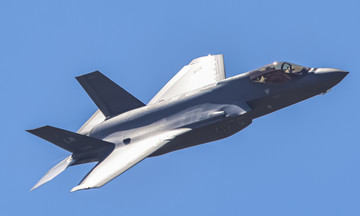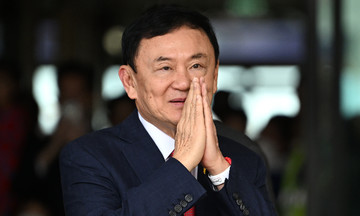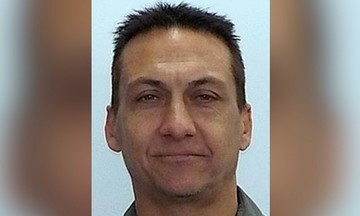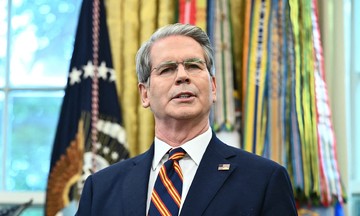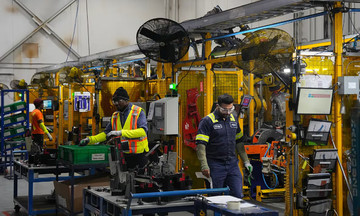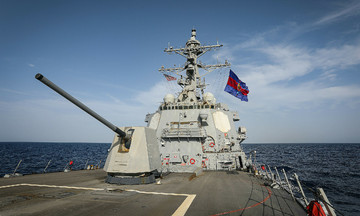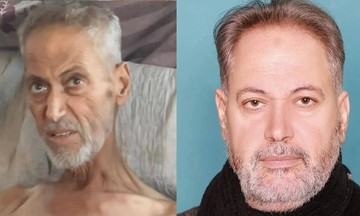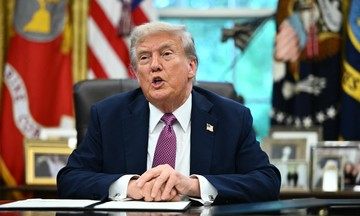Following a cabinet meeting on 5/9, Lebanese Information Minister Paul Morcos said the government welcomed measures proposed by the army to "expand state authority through its own forces, allowing only legitimate bodies to possess weapons".
He said the Lebanese army would begin implementing the plan to disarm Hezbollah, but noted that this needed to be done based on "existing resources, which are limited in terms of logistics, material, and personnel".
Minister Morcos did not disclose details of the plan, but said the Lebanese army would submit monthly reports on the issue to the cabinet.
 |
Lebanese cabinet meeting on disarming Hezbollah on 5/9. Photo: AFP |
Lebanese cabinet meeting on disarming Hezbollah on 5/9. Photo: AFP
Five Shiite ministers, including officials from Hezbollah and its ally, the Amal movement, earlier left the cabinet meeting when the Lebanese army commander entered to present the disarmament plan, according to local media.
Hezbollah and Amal ministers walked out three times during the cabinet meeting due to disagreements over the issue. Hezbollah is determined to retain its weapons.
The Lebanese government in August ordered the army to draft a plan to disarm Hezbollah this year, under pressure from the US and Israel. Beirut said the plan was part of a ceasefire agreement reached between Hezbollah and Tel Aviv in November 2024, brokered by Washington.
The Lebanese government agreed to the objectives outlined in a document submitted by US special envoy Tom Barrack. This document detailed the schedule and mechanism for disarming Hezbollah's arsenal, as well as Israel's withdrawal from Lebanon.
Beirut then said Tel Aviv "had not shown any commitment" to the content of Washington's proposal, nor "taken corresponding steps" in exchange for Lebanon's commitment. Lebanon asserted that any progress related to the implementation of the proposal would depend on other parties, mainly Israel.
 |
Hezbollah members at the funeral of two commanders in Beirut, Lebanon, in September 2024. Photo: AFP |
Hezbollah members at the funeral of two commanders in Beirut, Lebanon, in September 2024. Photo: AFP
Hezbollah was founded in the early 1980s with the backing of Iran's Islamic Revolutionary Guard Corps to fight Israel. Beyond its militia status, the group also holds significant social, religious, and political influence within the Shiite Muslim community in Lebanon.
The group's political wing and its allies control nearly half the seats in the Lebanese parliament and some cabinet positions. Hezbollah is also the only armed group allowed to retain its weapons after the 1975-1990 Lebanese civil war.
The fall of the Syrian government under former president Bashar al-Assad, an ally of Hezbollah, as well as the conflict with Israel, has weakened the group and diminished its influence in Lebanon.
Pham Giang (According to AFP)



